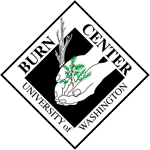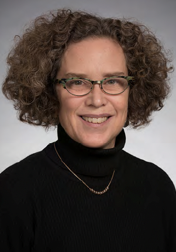Dr. Nicole Gibran, the past NWRBMS project director and UW Professor Emeritus, will receive the Schilling Distinguished Faculty Award for her years of service to the burn and trauma community during the upcoming Department of Surgery 27th Annual Helen & John Schilling Lecture.
Congratulations Dr. Gibran and thank you for leading us in the care of those impacted by burn injury. This acknowledgement, to include your impact through the Burn Model System program of research, and years of clinical service, is well deserved.
From the original award announcement:
Dr. Gibran is Professor Emeritus in the UW Department of Surgery. She recently retired, in July 2021, after an illustrious career that spanned over 30 years at the University of Washington. Dr. Gibran completed surgical training residency in Boston, and started her career in Seattle by completing a clinical burn fellowship (1991) and a NIH 132 research fellowship (1994). She then joined as faculty in the Division of Trauma, Burn and Critical Care Surgery. She quickly obtained her first major federal grant and continuously received federal research funding over her entire career. She was recognized for her work in multiple ways, most notably through her tenure as chair of the Surgery, Anesthesia, Trauma (SAT) Study Section at the NIH (2005-2007), becoming the first woman to serve as president of the American Burn Association (ABA) in 2012, and rising to the role of UW Associate Dean for Research and Graduate Education in 2018. The following three areas highlight her most significant research contributions in burns:
IMPROVED UNDERSTANDING OF THE GENETICS OF POST-BURN SCARRING
Clinical observations point to a genetic link for increased risk of hypertrophic scarring in certain individuals, including Black, Indigenous and People of Color (BIPOC). For over 10 years, Dr. Gibran led a translational effort to better understand genetic associations with fibroproliferation. Her research strategies ranged from in vitro models, a unique porcine model (using the Red Duroc Pig) that is most relevant to human scarring, and a human observational study that included a Genome Wide Association Study.
CLINICAL RESPONSES TO INJURY AND QUALITY BENCHMARKS
As a busy clinical surgeon and UW Burn Center Director, Dr Gibran sought to improve all phases of care, from early resuscitation to late scar management. She led this work through retrospective and prospective studies, multi-center industry-sponsored trials, and multi-center federally funded clinical trials such as the Glue Grant “Inflammation and the Response to Injury.” At the national level, she also led efforts to introduce quality benchmarking through development of the Burn Quality Improvement Project and elevated standards for burn center verification during her tenure as chair of the ABA Verification Committee.
LONG-TERM OUTCOMES AFTER BURN INJURY
With improved survival in the era of modern burn care, providers over the past 30 years have increasingly focused on recovery and quality of life after burns. Dr. Gibran’s work in this arena focused on long-term physical and psychological outcomes. Most of this work was through the federally funded Burn Model System Program, a 27-year multicenter effort to understand and improve long-term recovery. Burn Model System research and dissemination efforts serve to facilitate patients’ return to school / work as part of community reintegration. As a researcher and mentor, Dr. Gibran has elevated the state of burn research – in the UW Department of Surgery and beyond – and challenged a generation of trainees to think more deeply and critically about burn injury and care.




